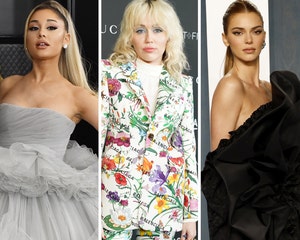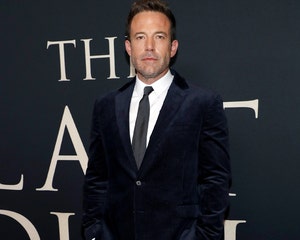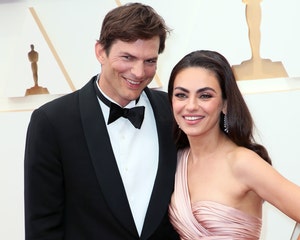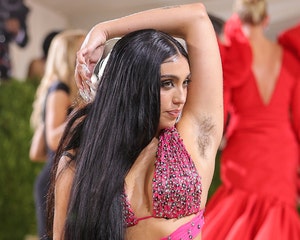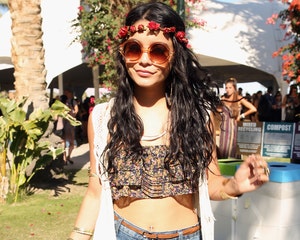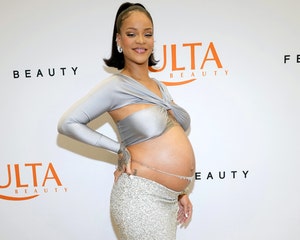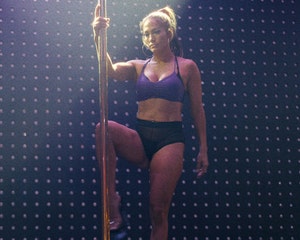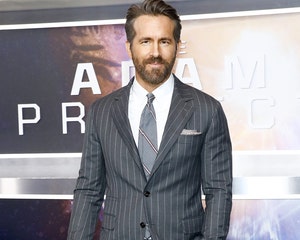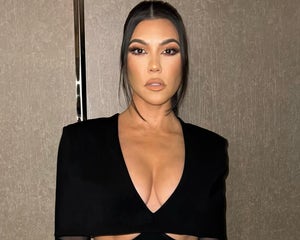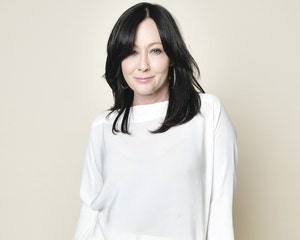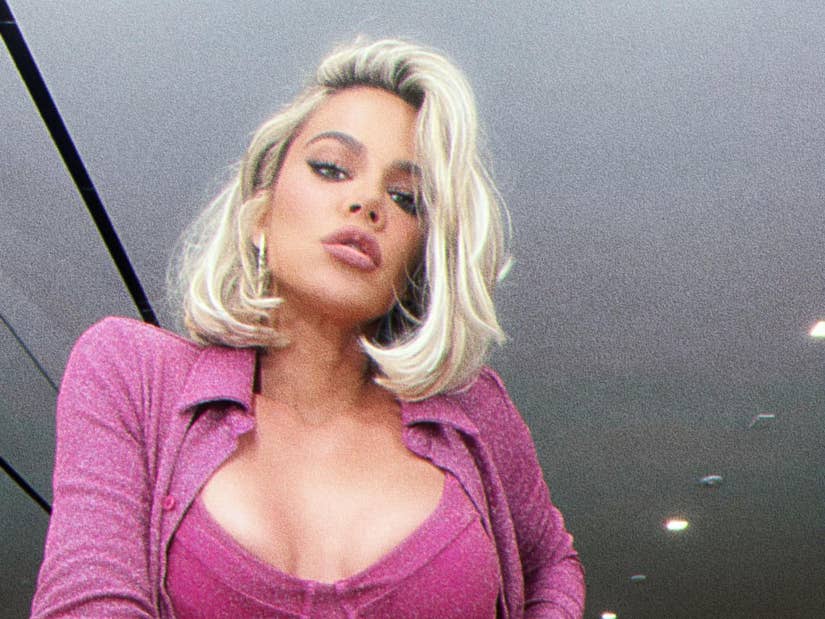The Top 10 Most Banned Books in America
"I write books for teenagers because I vividly remember what it felt like to be a teen facing everyday and epic dangers."
Book bans are at an all-time high with controversial literature being ripped from classrooms and libraries across the country. Over the past year, the American Library Association tracked more than 1,500 individual book challenges or removals — the largest number since they began compiling book ban lists 20 years ago. Most of these targeted titles were by or about Black or LGBTQIA+ persons, creating a real threat to the diverse books children and teens usually have access to.
“We support individual parents’ choices concerning their child’s reading and believe that parents should not have those choices dictated by others. Young people need to have access to a variety of books from which they can learn about different perspectives. So, despite this organized effort to ban books, libraries remain ready to do what we always have: make knowledge and ideas available so people are free to choose what to read,” ALA President Patricia “Patty” Wong said in a statement.
160 Stars Sign Ad Condemning Plan to Overturn Roe v. Wade
To combat the unprecedented number of attempts to ban books, the ALA is also launching Unite Against Book Bans, a national initiative focused on empowering readers everywhere to stand together in the fight against censorship.
Here are some of the most frequently banned books in the US in the past year…
1. “Gender Queer: A Memoir” by Maia Kobabe
Over the past year, Maia Kobabe’s illustrated book “Gender Queer: A Memoir” has been banned in 30 school districts across the country. In the memoir, Maia, who uses e/em/eir pronouns, shared eir journey as a gender nonbinary person. Maia reflects on eir road to self-discovery from adolescence to adulthood and all the familiar teenage problems along the way.
Opponents of the book took issue with the book’s LGBTQIA+ content as well as illustrations considered sexually explicit. Maia has since fought back, saying that it is necessary for queer youth to be able to find reliable literature.
“Queer youth are often forced to look outside their own homes, and outside the education system, to find information on who they are. Removing or restricting queer books in libraries and schools is like cutting a lifeline for queer youth, who might not yet even know what terms to ask Google to find out more about their own identities, bodies and health,” Maia wrote in an op-ed for The Washington Post.
9 Directors Who Walked Away From Movies In the Middle of Filming
2. “Lawn Boy” by Jonathan Evison
Jonathan Evison’s novel “Lawn Boy” follows a young Mexican American working on a landscaping crew in Washington while coming to terms with his sexual identity. The semi-autobiographical coming-of-age novel was originally penned for adults but found a large fanbase among younger readers, even earning it the coveted Alex Prize issued by the Young Adult Library Services Association.
Critics condemned the book for its LGBTQIA+ content as well as a sexual encounter scene between two young men that was considered sexually explicit. Despite Jonathan receiving hate mail and death threats from those trying to ban his book, he considers it an honor to be listed among the “great literature” that has been banned in the past.
“When I look at the wealth of great literature that unenlightened souls have sought to ban through the ages, how could I feel anything but pride to be listed among them? To those who would ban my book and burn me at the stake because they are ashamed of their own past experiences, or uncomfortable with any non-binary sexual identifications, I hope you find healing,” Jonathan wrote.
12 Celebs Who Don't Have Help Raising Their Kids
3. “All Boys Aren’t Blue” by George M. Johnson
“All Boys Aren’t Blue” has been banned in 21 school districts across the US based on the content of George M. Johnson’s “memoir-manifesto” about growing up as a queer Black person in New Jersey and Virginia. The book contains essays chronicling George’s adolescence — from experiencing young love to darker moments like the bullying they experienced and their molestation by a family member.
Those against the book argued against its LGBTQIA+ discussions, profanity, and content they considered to be sexually explicit. George has fought back against bans, explaining that children will be exposed to heavy topics whether or not the book is on shelves.
“Books with heavy topics are not going to harm children. Children still have to exist in a world full of these heavy topics, and are going to be affected by them whether they read the book or not. Having [this] book, though, gives them the tools, the language, the resources and the education so that when they are having to deal with a heavy topic, they have a roadmap for how to handle it,” George told Time.
11 Stars Who Totally Embrace Their Body Hair
4. “Out of Darkness” by Ashley Hope Pérez
Sixteen school districts across the country have banned “Out of Darkness,” a historical fiction novel set in an East Texas oil town during the 1930s. The book follows a blossoming teenage romance between a Mexican American girl and a Black boy, divided by racism and classism, and it all lead up to the disastrous events of the 1937 New London School explosion.
The novel has been challenged since its release due to its depictions of abuse and content considered to be sexually explicit. In one instance, a mother shared her disdain for the novel at a recorded school board meeting, where she yelled as she argued that the book promoted anal sex. In actuality, the scene she references is more of a commentary on how some of the town’s white teens harbor violent sexual fantasies about the young Mexican American girl.
“I wrote [‘Out of Darkness’] for brave, big-hearted readers ready to embrace some painful aspects of our country’s history. I believe that it should be available in libraries that serve teenagers along with the other young adult books that have recently been banned,” Ashley said in a YouTube video.
These 11 Celebs Are Totally Obsessed With Coachella
5. “The Hate U Give” by Angie Thomas
Angie Thomas’ novel “The Hate U Give” may have earned critical acclaim and been turned into a movie but that hasn’t stopped critics from speaking out against the award-winning book. The novel, which was inspired by the Black Lives Matter movement, follows 16-year-old Starr Carter whose life is upended when she witnesses the fatal shooting of her unarmed childhood best friend Khalil at the hands of a police officer.
Critics of the novel called out the book for its violence, use of profanity and the idea that it promoted an “anti-police message” and “indoctrination of a social agenda.” Meanwhile, Angie says the message about police brutality is too important not to be discussed.
“We have to have discussions about police brutality…Honestly, there is a fear among some parents — I’ll just say it: white parents — who say, ‘I’m not sure my child is ready for this.’ The fact is, Black parents are [needing] to have these conversations with their 9 and 10-year-olds about the subject matter in this book. I need white children to be aware of that,” the author told EW.
The Most Extravagant Gifts Celebs Have Given Their Moms
6. “The Absolutely True Diary of a Part-Time Indian” by Sherman Alexie
Sherman Alexie’s semi-autobiographical novel “The Absolutely True Diary of a Part-Time Indian” follows the journey of 14-year-old Arnold Spirit Jr. as he grows up on the Spokane Indian Reservation. The promising young cartoonist attends a public high school in a nearby farm town but faces ostracization from his nearly all-white classmates as well as those on the reservation who consider him a traitor.
Over the 15 years since the book has been released, it has been banned and challenged for its sexual references and use of both profanity and a derogatory term. Sherman has fought back against these claims, explaining that he regularly receives letters from teens who praise the book and the story.
“I write books for teenagers because I vividly remember what it felt like to be a teen facing everyday and epic dangers. I don’t write to protect them. It’s far too late for that. I write to give them weapons — in the form of words and ideas — that will help them fight their monsters. I write in blood because I remember what it felt like to bleed,” Sherman wrote in The Wall Street Journal.
12 Actors Who Got Paid Almost Nothing For Their Roles
7. “Me and Earl and the Dying Girl” by Jesse Andrews
“Me and Earl and the Dying Girl” was also turned into a feature film but hasn’t managed to stay on shelves in certain classrooms and libraries. The book follows a high schooler named Greg whose life changes when his mother forces him to befriend Rachel, a classmate with leukemia. As he and his best friend Earl go on to make a movie about Rachel, his outlook on life is forever altered.
Critics of the novel called for the book to be banned because it was sexually explicit, with some even going as far as to call it pornographic. Author Jesse Andrews says that anyone calling it that is sorely mistaken.
“I used to find these attempts to ban ‘Me & Earl & the Dying Gir’ funny, just because they were so ridiculous. It’s a potty-mouthed book about how hard it is to process pain and grief, and how hard it is to grow up. The idea that this harms anyone is beyond stupid…Anyway, I’m not laughing anymore. These book bans are picking up momentum. All around the country, fearful purity-obsessed parents and opportunistic politicians are making kids’ lives worse,” Jesse tweeted.
12 Famous Men Who Have Gotten Real About Mental Health
8. “The Bluest Eye” by Toni Morrison
Toni Morrison’s 1970 novel “The Bluest Eye” has been banned in 12 school districts in the past year alone. The prolific book tells the story of Pecola Breedlove, an abused young Black girl growing up following the Great Depression. Stuck in her rural Ohio town and pregnant by her own father, she wishes desperately for blue eyes, believing that it would be her escape but instead she is only driven to madness.
The book, which is considered sexually explicit by some, has been banned for its depiction of child sexual abuse. Toni has said that she’s not too phased by her books being banned because it actually raises the profile of her literature, which she knows students can still find elsewhere.
10 Celebs Who Have Gotten Very Real About Their IVF Journey
9. “This Book is Gay” by Juno Dawson
“This Book is Gay” has served as the ultimate guide to growing up LGBTQIA+ since being released in 2014. The uncensored book covers everything from coming out to dealing with stereotypes and goes as far as to even provide details of gay sex.
Unsurprisingly, the book has been challenged for its sexual content as well as its efforts to provide sexual education. Author Juno Dawson says taking the books out of classrooms only hurts teens in the LGBTQIA+ community and leaves them without an important resource.
“Who else does removing these books from libraries hurt except LGBTQ teenagers? Taking ‘This Book is Gay’ out of a school isn’t going to stop young people figuring out their identity, but it will leave them without a valuable resource,” Dawson wrote in an op-ed.
8 Actors Who Totally Didn't Approve of Their Show's Reboot
10. “Beyond Magenta: Transgender Teens Speak Out” by Susan Kuklin
Over the past year, 11 school districts have banned “Beyond Magenta: Transgender Teens Speak Out,” a book that profiles six transgender and gender-neutral teens. The interviews share each teen’s journey of self-discovery and how they have navigated everything since coming out.
While the book has won numerous awards since being released in 2014, it has been constantly challenged for its LGBTQIA+ content as well as content deemed to be sexually explicit. Author Susan Kuklin says those against the book simply don’t understand it.
“This is dangerous knowledge. It’s scary to people because they don’t understand it. Once you get to understand it, it’s no longer frightening. But there’s that period before it happens, where there’s so much pushback and so much fear. And I think that’s what happened with my book,” Susan told CBS.
Source: Read Full Article
